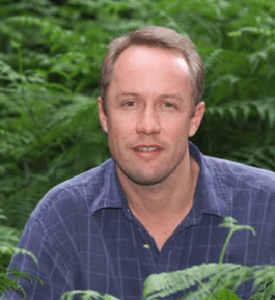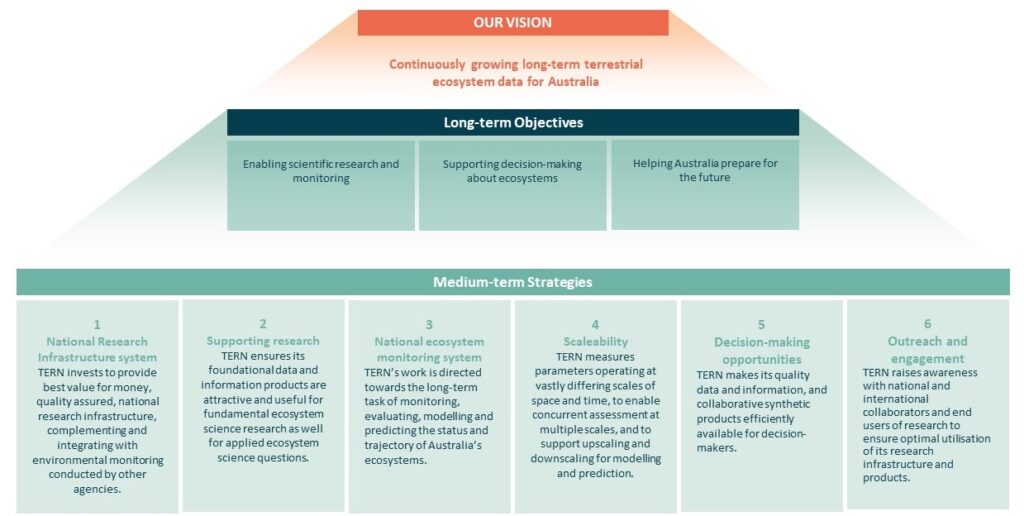Welcome to the September 2020 TERN eNewsletter, which finds us undertaking last minute preparations for sending a field crew to Kangaroo Island (KI) in South Australia. In a year marked by bushfires and a pandemic, this is a big deal for TERN. Not only are we travelling into the field again, but we are going to carry out post-bushfire surveys to track ecosystem recovery on KI. Half of our permanent plots on the island were burnt in the 2019-20 bushfires and the island trip is the first of many trips across the nation to work on restoring damaged infrastructure and re-establishing data streams. TERN’s post-bushfire work is all thanks to additional NCRIS funding announced by Minister of Education Dan Tehan in August.
We congratulate Professor Hugh Possingham on his appointment as Queensland’s Chief Scientist. In these challenging times of trying to predict the cumulative impact of climate change and human activities on the environment, it is very satisfying to see such an internationally respected conservation biologist and mathematical modeller in the role. Hugh played a pivotal role in the conceptualisation of TERN more than a decade ago, so we checked our archives and found a TERN photo of Hugh in 2010 to share with you in celebration of his appointment.

Congratulations must also go to ICOS, the Integrated Carbon Observation System in Europe, which held its 2020 science conference in September over several days. With an in-house film studio, 1040 registrants, over 100 presentations and 85 posters, ICOS opened our eyes to what a virtual meeting experience should be like. As a carbon observation system, it was fantastic that ICOS’ science meeting met its target of knowledge exchange and progressing the climate agenda while contributing to neither carbon emissions nor travel costs. The chat function in the virtual format opened up discussion far beyond the presentations, especially as participants were not constrained by a few questions and polite answers at the end of the talk. Having recordings of parallel sessions provided major benefits for truly sharing knowledge meant that registrants could not only catch up with everything in the program but do so from within the comfort of their own time zones. Well done ICOS.
More than 30 dedicated TERN people have just wrapped up a virtual strategic planning day, refreshing the prioritisation of TERN’s core data packages and signature products. In current COVID-19 challenged times where everyone has been focused on events within their state and territory borders, we also looked at ways to better promote access to TERN via our network of state and territory-based Regional Ambassadors. Most importantly, we worked on the approaches and measures that allow TERN to enact and evaluate its progress in delivering agreed objectives and strategies – as shown in the figure. With the next national research infrastructure roadmap consultation process about to take-off this year, these discussions are vital for TERN’s future planning and communication with stakeholders. Thanks to all participants for a rewarding meeting.
The last piece of news this month is about the Global Ecosystem Research Infrastructure (GERI), a group of continental-scale observatories comprising TERN and its equivalents from South Africa, China, Europe and North America. The role of chair for the governance board of GERI was officially handed to TERN at the September meeting, where it will remain for the next six months. Regularly rotating the chair is just one of the ways in which GERI is demonstrating the balance among its members – all of our observatories are equally important to the monitoring of ecosystems on our planet. While in the Chair, it is TERN’s responsibility to establish a suite of working groups which will help in developing the common science questions, data collection protocols, parameters, data systems and so on that will be adopted by GERI. A busy six months of GERI work awaits so I will leave you to peruse this month’s newsletter while we get back to TERN’s planning and strategising.
Happy reading.








